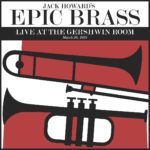Still On Fire
Mark Seymour interview written just before the final mix of Ghost Nation.
Author: John O’Donnell, Rolling Stone.
Date: ~November 1989.
Original URL: N/A.
Hunters & Collectors relax a little and find their river’s far from dry.
“It’s a really strange situation. I just figure that we’ve reached a point in this country, where if this album doesn’t go through the roof, everything’s a joke, the whole thing’s a complete joke. I mean we’re so huge live, that if we only sell gold this time around, then there’s something seriously wrong with the industry I this country.”
Mark Seymour, lead singer of Hunters & Collectors, is up from Melbourne is tying up the loose ends of the video for the single, “When The River Runs Dry”, from the band’s seventh album, Ghost Nation. Tomorrow he’s flying to New York to oversee the final mix of the album. Somewhere along the line he’s trying to squeeze in time to see U2 perform and have dinner with his old friend Nick Barker.
Despite the hectic schedule and the apparent seriousness of his opening declaration, Seymour’s in a relaxed and affable mood. He’s conducting business with his shoes kicked off, his feet tucked up under him, and, as always, he’s looking healthier than rock stars have a right to.
“I’m so well acquainted with the way things work that I feel quite philosophical about it all,” he says. Then he offers, more positively, “but things are looking pretty good. I’ve got lots of reasons to be confident.”
Seymour’s mood, he indicates, is representative of the band’s. Since Hunters & Collectors first emerged, in 1981, they’ve maintained an earnest stance, made manifest, initially by a sound that was equal parts percussion and pretense, and then, with the albums Human Frailty and What’s A Few Men?, with a sound that was passionate, sinewy and dynamic. The past twelve months however, has seen the member’s loosen up, personally and musically.
“We were taking outside factors too seriously,” the singer explains. “We were suffering from the problem that a lot of middle order bands have, in this country. Which is that there’s been two or three groups that have had a lot of success in America in the last couple of years, and the bands that were immediately underneath them, like the Hunters, were looking at them and asking ‘Well, what’s the formula?’.
“But you meet these people and you realise that trying to read the American market is a crock; you can’t do it. No-one can do it. So I just decided to go back into the rehearsal room and write stuff that I like. Stuff that feels good to me. And all the rest of it, if it’s going to happen as a result of that then it’ll happen.”
The Hunters have spent almost all of 1989 in the rehearsal room, or the studio, fleshing out songs as a band. They also added guitarist Barry Palmer as a permanent member, which has freed up Seymour’s role as frontman and more evenly balanced the personalities in this, now seven piece, line-up.
“Ghost Nation basically began with the guitars and the rhythm section sitting together and jamming. And with Barry there, the whole thing sort of started floating a lot more. We were listening to that Keith Richards album, Talk Is Cheap, that was really inspiring. We just sat around together exchanging riffs and going for grooves.
A lot of the lyrics I wrote were quite marginal at the time and I just sort of fleshed them out as the songs developed. I began to understand the way the band was connecting with me personally, rather than saying, ‘This is the lyric guys, here we go, perform for me’. You can’t do that, you can’t put that on six other people. It’s not Mark Seymour and the Hunters & Collectors.”
The resulting album sees the band easing into its songs, striving for a feel, rather than shooting for the immediate dynamics of Human Frailty or What’s A Few Men?. The tempo, like the band’s mood, has softened a little and the songs suggests moods that were previously stated.
Producing the album themselves, the band handed the finished tapes to reknowned American mixer E.T. Thorngren, whom they’d never met, to finish the songs as he desired. “Philosophically, artists are their own worst enemy when it comes to production,” Seymour explains. “And with the size of the group, I mean I would never imagine being able to produce a Hunters & Collectors album myself.
“E.T. stripped the sound back and went for short sharp effects, and he pushed the drums right out front. It’s a good approach, I mean I would never had thought of it myself, not in a million years, but that’s why we went with him, ’cause we wanted an angle on it that we wouldn’t think of ourselves.”
It appears that Hunters & Collectors’ renewed enthusiasm, this new, relaxed ethos, has permeated all facets of the work. If Seymour’s lyrics have always possessed healthy doses of cynicism and disdain for the establishment, then Ghost Nation only furthers that.
“Some songs have almost a hymn-like quality and a lot of them are concerned with discovering your personal spirituality,” he says. “I’m not talking about God necessarily, but the idea of where your faith lies and what you believe in.
“The general thrust of the album is that you shouldn’t automatically believe in what the media tells you. You’ve got to make decisions for yourself. The difference between those who survive spiritually and those who die, are the ones to come to that realisation and live life according to their own rules.”
Thankyou to Matt for typing out this article for us all to enjoy.
Matt notes:
Ghost Nation is the Hunters’ seventh album, but it was only sixth studio effort. Included in their main releases is the 1985 live album ‘The Way To Go Out’.





